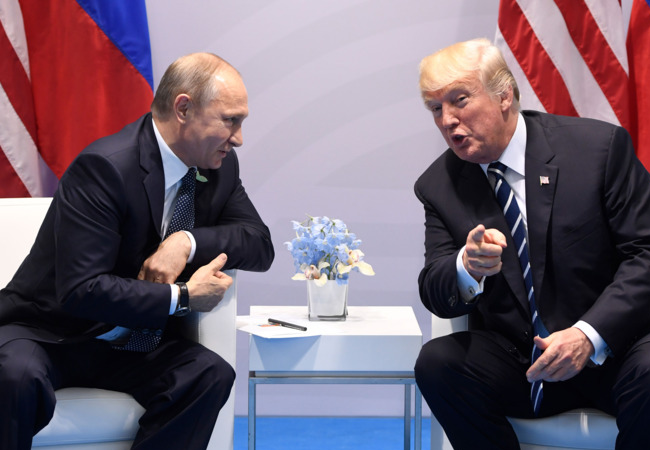Headline
NECA Expresses Worries Over N3trn FEC’s Approval For Subsidy On Petrol

The Nigeria Employers Consultative Association, NECA, weekend expressed fears that the N3trillion approved by the Federal Executive Council, FEC, to cover subsidy on Premium Motor Spirit, PMS, commonly known as petrol for 18 months, was neither desirable nor sustainable for the overall resuscitation of the economy.
It will be recalled that the Nigeria National Petroleum Corporation, NNPC, forwarded a proposal of N3 trillion to the Federal Executive Council, FEC, last Wednesday to cover cost of subsidy for 18 months, July 2022 to June 2023, stating that its removal would be suspended.
NECA, which is the umbrella body for all employers in the country, however, contended that for government to effect total removal of subsidy on petrol, it must take urgent steps to address the predicted socio-economic issues which would arise as a result.
Speaking on the N3 trillion Subsidy on petrol for the next 18 months by the Federal Government, NECA said: “The subject of fuel subsidy has become a matter of perpetual recurrence.
READ ALSO: Why Buhari Suspended Removal Of Fuel Subsidy – Presidency
“In the recent past, we had opined that the removal of fuel subsidy was due and in the best interest of the country.
‘’However, we were deeply concerned about the timing, in view of the nation’s continued dwindling economy.
“Consequently, we encourage the government to engage relevant stakeholders, given the huge impact the removal would have on household income and spending before its implementation.
“The N3 trillion approved by the Federal Government is a follow-up to the suspension of the planned removal of subsidy in the country.
“It should be noted that following the public outcry on government’s intention to stop the subsidy of PMS, the Federal Executive Council approved the sum of N3 trillion to cover subsidy.
‘’In taking this decision, the government noted that the abrupt removal of subsidy would lead to increased hardship in the population and heightened inflation, especially since the necessary structures that would cushion the effects of subsidy removal on the general populace were not yet in place.
“While the Federal Government has rescinded the implementation plan and rather approached the National Assembly to amend the 2022 budget and make additional provision for subsidy from July to June 2023, it is imperative to note that this is certainly not sustainable in the long term, neither is it desirable for the overall resuscitation of the Nigerian economy.
“As often canvassed by the Organised Private Sector on the growing debt debacle, we call for more collaborative efforts in the form of Public Private Partnership, PPP, in addressing the huge infrastructure deficits, in a very short term and at cheaper rate.
‘’ It is our belief that implementing the PPP initiative in provision of the country’s critical infrastructure, decent and sustainable jobs will be provided and desirable number of people will be lifted from the poverty rank, even before the desired date of 2030.
“More so, with the unpredictable nature of global oil prices and developments in usage of alternative sources of fuel and modern technology, it is more appropriate to hasten the process of diversification of the non-oil economy in expanding the revenue sources away from oil.
‘’It is obvious that revenue from non-oil is more feasible than the oil revenue. This will result in a buoyant and robust economy which will reduce the need for external debt to the barest minimum.
“Exploration of the various natural mineral deposits in the country for processing and exportation should be optimized.
“Going forward, government has to take urgent steps to address the predicted socio-economic issues which would arise if subsidy removal is to see the light of the day.
READ ALSO: Fuel Subsidy Removal: Cleric Issues Warning To Buhari
“Government should address the following urgently to foster total removal of subsidy on petrol rather than injecting trillions of naira from an already bleeding economy.
‘’They include the revival of the four refineries in the country to optimal operating capacity and encouragement of more private sector involvement in refining crude oil, complete deregulation of the downstream sector, and provision of socio-economic relief options to address the anticipated drastic reduction in the citizens’ disposable income and standard of living.”
(VANGUARD)
Headline
UK Supported US Mission To Seize Russian-flagged Oil Tanker – Defense Ministry

The British Ministry of Defence said on Wednesday that it provided support to the United States in its operation to seize a Russian-flagged oil tanker in the North Atlantic.
US seized the tanker, which was being shadowed by a Russian submarine on Wednesday, after pursuing it for more than two weeks across the Atlantic as part of Washington’s efforts to block Venezuelan oil exports.
According to Britain, its armed forces gave pre-planned operational support, including basing following a US request for assistance.
READ ALSO:UK Introduces Powers To Seize Phones, SIM Cards From Illegal Migrants
The UK also said a military vessel provided support for the US forces pursuing the tanker, and the Royal Air Force provided surveillance support from the air.
Defence Secretary John Healey stated that the operation targeted a vessel with a nefarious history linked to Russian and Iranian sanctions evasion networks.
“This action formed part of global efforts to crack down on sanctions busting,” he said in a statement.
READ ALSO:Venezuelan Deportees: US Embassy Gives Reason For Reducing Visa Validity For Nigerians
According to him, the US was Britain’s closest defence and security partner.
“The depth of our defence relationship with the US is an essential part of our security, and today’s seamlessly executed operation shows just how well this works in practice,” he added.
The British government said that the Bella-1 tanker, now renamed Marinera, is sanctioned by the US under its counter-Iran sanctions,
The MoD statement said the support was provided in full compliance with international law.
Headline
Russia Deploys Navy To Guard Venezuelan Oil Tanker Chased By US In Atlantic

Russia has deployed naval assets to escort a sanctioned oil tanker across the Atlantic following reported moves by the United States to seize the vessel.
US forces were said to be preparing to board the ship, which has a history of transporting Venezuelan crude oil and was last believed to be sailing between Scotland and Iceland.
CBS News reported that Russia stepped in to protect the tanker, raising the prospect of a direct confrontation between the two powers at sea.
READ ALSO:Russia Calls up 135,000 Military Personnel
By sending naval ships into the North Atlantic, Russian President Vladimir Putin is signalling to United States President Donald Trump that any US action would carry consequences, coming after the US president threatened that he might use the military to seize Greenland.
The tanker, currently empty, previously operated under the name Bella 1. Last month, the US Coast Guard attempted to board it in the Caribbean with a warrant over alleged breaches of US sanctions and claims that it had shipped Iranian oil.
The vessel later changed course, renamed itself Marinera and reportedly reflagged from Guyana to Russia.
READ ALSO:Venezuela Frees Eight Opposition Leaders
Trump last month said he had ordered a ‘blockade’ of sanctioned oil tankers entering and leaving Venezuela, a policy the government in Caracas branded ‘theft’.
Ahead of the US seizure of ousted Venezuelan leader Nicolás Maduro on Saturday, Trump accused the country’s government of using ships to smuggle drugs into the United States.
Two US officials told CBS News on Tuesday that American forces were planning to board the Marinera, adding that Washington would prefer to seize the tanker rather than sink it.
Russia’s Foreign Ministry said it expects Western countries to respect principles of freedom of navigation.
(Daily Mail News)
Headline
UK Introduces Powers To Seize Phones, SIM Cards From Illegal Migrants

The United Kingdom has rolled out expanded enforcement powers allowing authorities to confiscate mobile phones and SIM cards from migrants who enter the country illegally.
The new measures, which do not require an arrest, came into force on Monday at the Manston migrant processing centre in Kent and represent a significant tightening of border controls.
According to the Home Office, the powers are intended to support intelligence-gathering operations aimed at disrupting criminal networks that organise and profit from dangerous Channel crossings.
Officials at the centre are equipped with technology that enables them to extract and analyse data from seized devices, a move the government says will help track and dismantle smuggling rings.
READ ALSO:Russia-Ukraine War: Pope Leo Calls For Global Christmas Truce
Under the revised rules, migrants are permitted to be asked to remove outer garments if there is suspicion that phones are being concealed.
In certain circumstances, officers may also check mouths for hidden SIM cards or small electronic items.
The National Crime Agency said information recovered from devices could accelerate investigations and improve the effectiveness of action against organised crime groups.
Border Security Minister Alex Norris said the policy was necessary to regain control of the UK’s borders and confront human trafficking operations.
“We are committed to restoring order and tackling the people-smuggling gangs behind this lethal trade,” Norris said.
READ ALSO:
“These stronger laws give authorities the tools to disrupt, intercept and dismantle these networks more quickly and effectively,” he added.
The legislation also introduces tougher criminal penalties linked to illegal crossings.
Individuals found storing or supplying boat engines for unauthorised journeys could face prison terms of up to 14 years, while those involved in researching equipment or plotting routes may be liable to sentences of up to five years.
Government officials stressed that the powers would be exercised with discretion.
READ ALSO:UK Unveils Record-breaking Bid For 2035 Women’s World Cup
The Minister for Migration and Citizenship, Mike Tapp, said devices could be returned depending on individual circumstances and the relevance of the information obtained.
“If a device may contain intelligence that helps combat smuggling, it is right that it can be seized,” Tapp said, adding that the approach would not undermine compassion toward migrants.
However, humanitarian organisations have expressed unease about the impact of the policy.
The Refugee Council warned that mobile phones often serve as vital lifelines for migrants, enabling contact with family members and access to support services, and urged authorities to ensure the measures are applied in a proportionate and humane manner.

 News3 days ago
News3 days agoWhat I Saw After A Lady Undressed Herself — Pastor Adeboye

 Headline3 days ago
Headline3 days agoPROPHECY: Primate Ayodele Reveals Trump’s Plot Against Tinubu

 Metro3 days ago
Metro3 days agoArmed Robbers Shot PoS Operator To Death In Edo

 Metro2 days ago
Metro2 days agoAAU Disowns Students Over Protest

 Metro2 days ago
Metro2 days agoNine Soldiers Feared Dead In Borno IED Explosion

 Metro3 days ago
Metro3 days agoJoint Task Force Kills 23 Bandits Fleeing Kano After Attacks

 Politics3 days ago
Politics3 days ago2027: Rivers APC Pledges To Follow Wike’s Instructions

 Metro2 days ago
Metro2 days agoEdo: Suspected Kidnappers Kill Victim, Hold On To Elder Brother

 Metro3 days ago
Metro3 days agoGunmen Demand N200m Ransom For Kidnapped Brothers In Edo

 Business2 days ago
Business2 days agoNNPCL Reduces Fuel Price Again


















